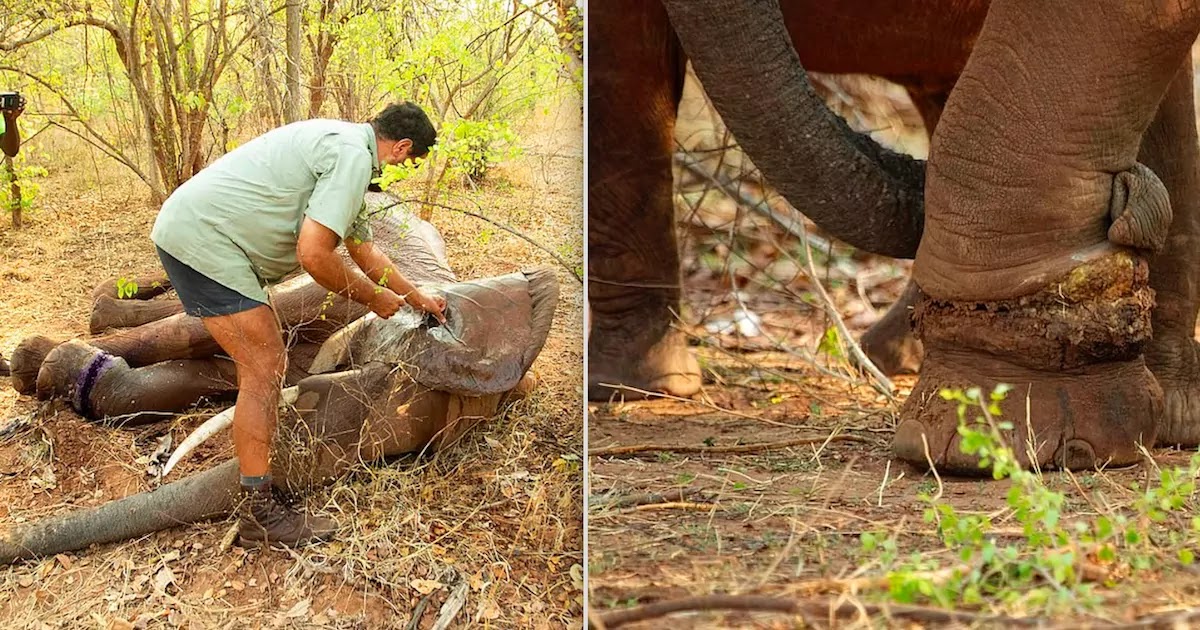
A team of wildlife experts in Zimbabwe have rescued an elephant who became trapped in a snare. It is likely that if the elephant had not been saved, it would have either died or have been killed by the hunter who left the trap.
Catherine Norton, 58, who is a conservationist living in Zimbabwe, and her team came to the rescue after being called by a safari camp owner who found the injured animal.
The conservationists discovered that the elephant's leg had become trapped by a sharp wire that had dug deep into the animal's flesh.
Martha, as the elephant is known, also has a baby which would have been unable to fend for itself had she died. The team luckily had access to drugs to immobilise the animal before they could free her leg, otherwise they would have been taking their own lives into their hands, particularly if Martha had begun to panic.
"There was a wire snare digging deep into her left front leg, crippling her and causing severe pain. We had to clean the wound as it was infected, give her antibiotics and remove the snare with wire cutters. It only took her a few minutes to come around, but the outcome could have been so much worse. It shows how much damage can be done to an innocent animal with just one piece of wire. Poaching isn't just about shooting and axes."
Poachers set multiple snares in areas in which elephants roam in the hope of trapping them. They are often then shot and killed in order to steal their tusks. Ivory is still, unfortunately, a highly sought after commodity despite it being banned in most countries. Much of the modern demand for ivory comes from the far-East and China, where it is used as both decoration and to make traditional medicines.
There are huge profits to be made from ivory and this is what entices many poachers, particularly in a country as poor as Zimbabwe. Just 1kg of ivory can cost over $2,000 on the black market and, therefore, just one dead elephant can result in a massive financial reward.
'Save the Elephants', a group that campaigns to stop the ivory trade believes that between 2010 and 2012, 33,000 elephants were killed by poachers. It is thought that there are now only 450,000 African elephants living in the wild. Many governments now have dedicated anti-poaching teams armed with weaponry and the latest technology.
Unfortunately, many different animals get caught in poacher's snares. In 2017 a story of a lion being trapped in a snare in Zimbabwe went viral. The lion's neck became trapped and caused wounds so severe that the animal had to be put down.














COMMENTS